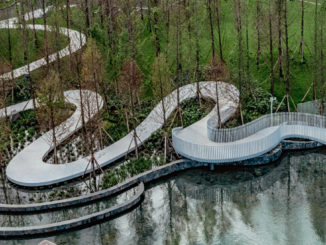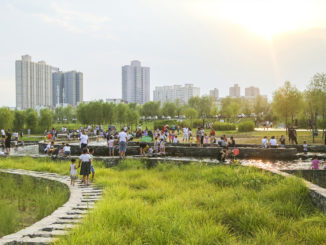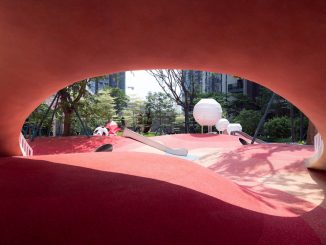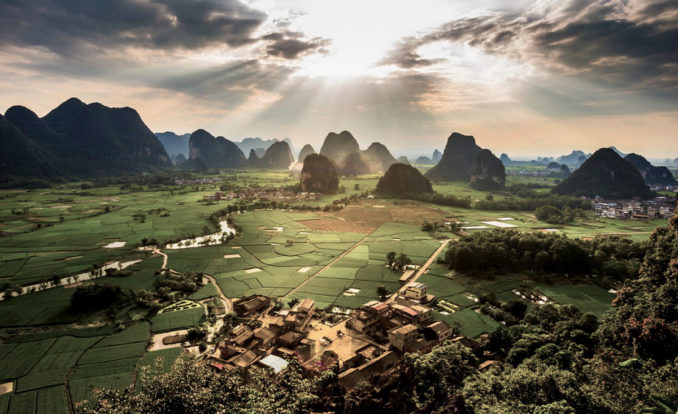
The Puyi Eco Hotel is part of the first phase of development for the wider eco-tourism and rural strategic master plan of the greater Huanghua Town. As one of the first modern establishments located along the town’s high street and entry to the site, the hotel and visitors centre is intended to be the seed to initiate the eco-tourism district.
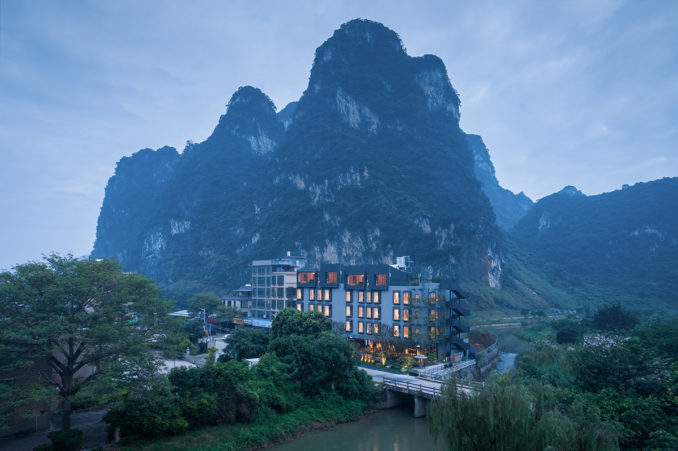
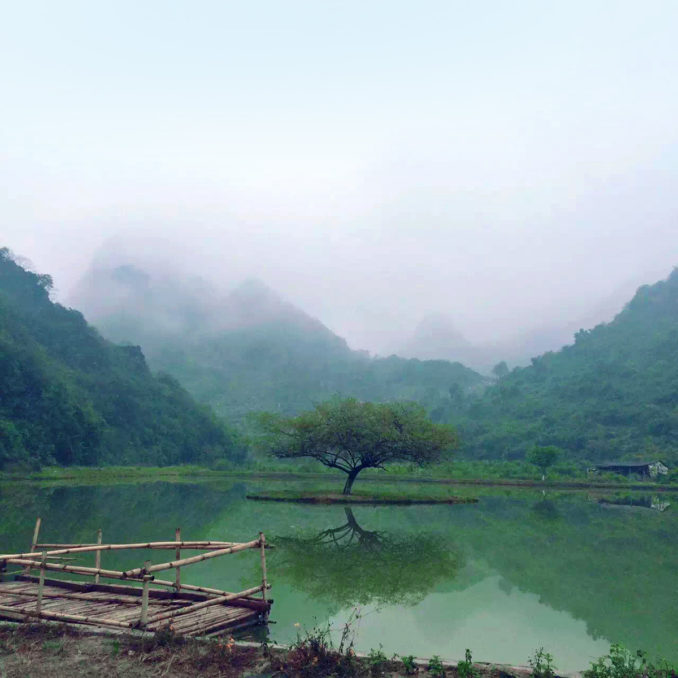
The greater 220km2 mountainous district has over the decades established a reputation for mountain climbing and camping. In response to the ever increasing influx of visitors, the government intends to implement tourism infrastructure with minimal impact to the local environment and communities. The Hotel intends to set a benchmark for future development standards along the high street, focusing on creating a district suitable for the international eco-tourism market. The concept integrates traditional Hakka culture within the iconic Karst mountain landscape with the aim of obtaining a AAAAA eco-tourism rating (highest rating in China). The resort and pilot town combines agriculture with sustainable rural eco-tourism. Upon completion, the master plan will contain a series of heritage village destinations integrating eco-agriculture, sightseeing and cultural tours, outdoor activities, health care, schools and improvements to existing attractions.
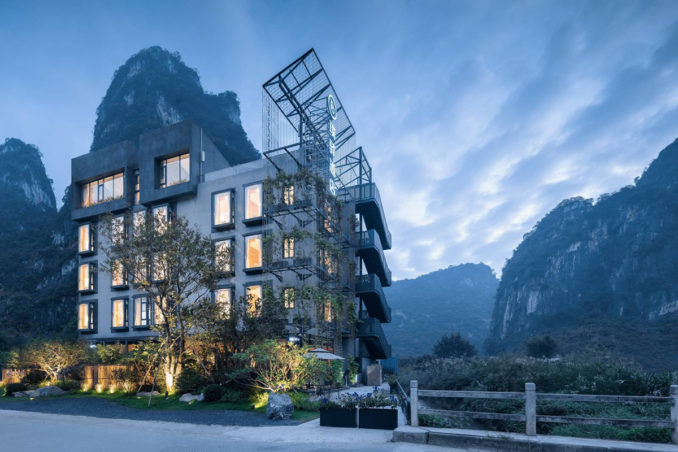
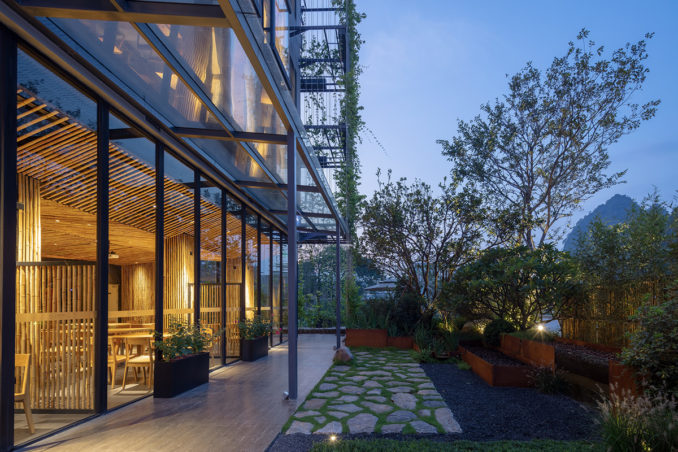
As the initial stages of the master plan phase, Puyi Eco Hotel is demonstrative of the region’s future development. The intention of the project was build a body of knowledge on how best practice sustainable design can be delivered within the project’s rural context. Due to its remoteness the project was integral in working with and training local craftsmen in sustainable practices as well as inspiring local government officials to the potential of the future sustainability of the region.
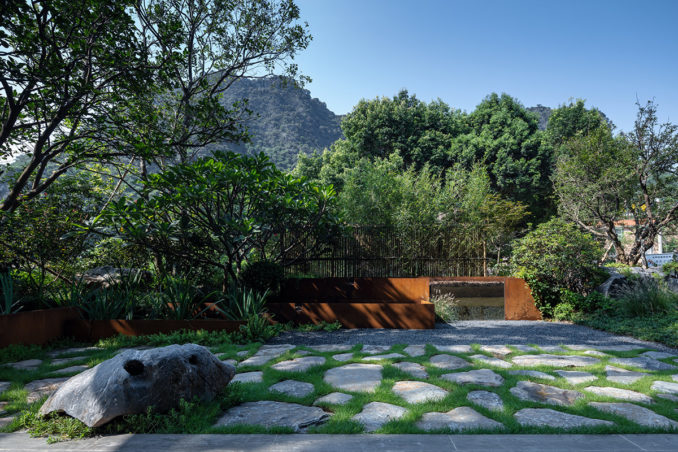
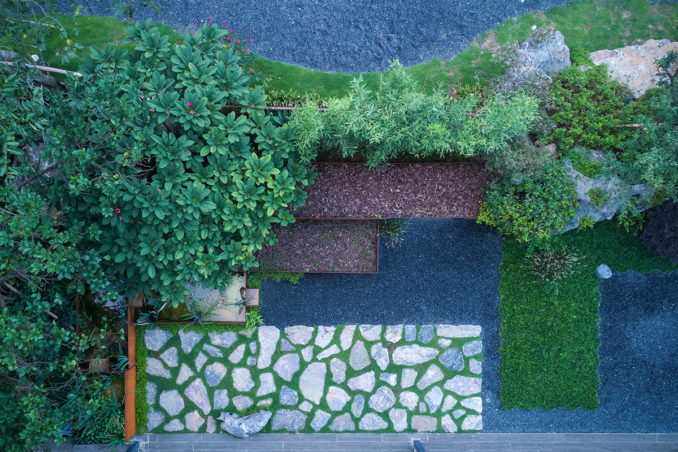
From the project’s outset the goal was to have as little impact while retaining as much value as possible within the region. Using local materials the project sourced over 2,000 stalks of bamboo to be used within the hotel’s interior, exterior and garden. The designers sourced other local materials and labor within a 10km radius of the project. The concept of urban renewal was introduced through using an existing abandoned building shell as the hotel’s framework, this sets an important precedent to encourage adjacent developments on the street to take a similar approach and promoted re-use. As part of the overall environmental strategy, the Hotel and garden contains off-grid capabilities such as water filtration and recycling as well as on site treatment of sewage and solar power generation. As an exemplar Sponge City Project (China’s largest WSUD development policy), the hotel gardens are designed to the highest national standards for recycled water re-use and stormwater management.
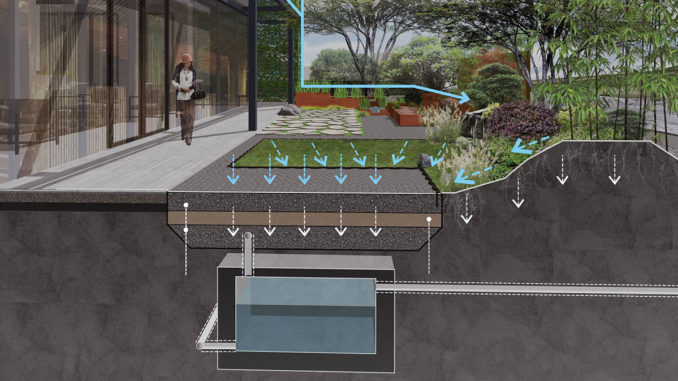
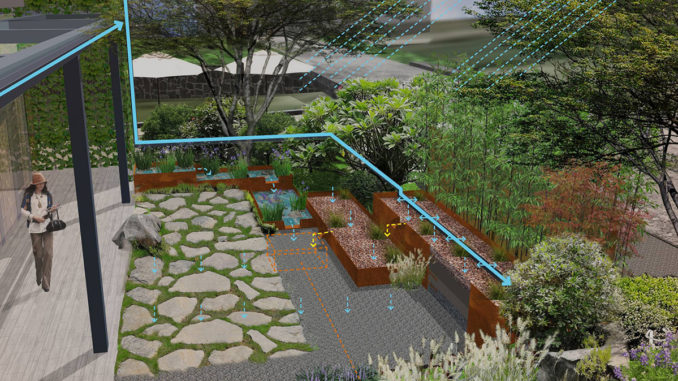
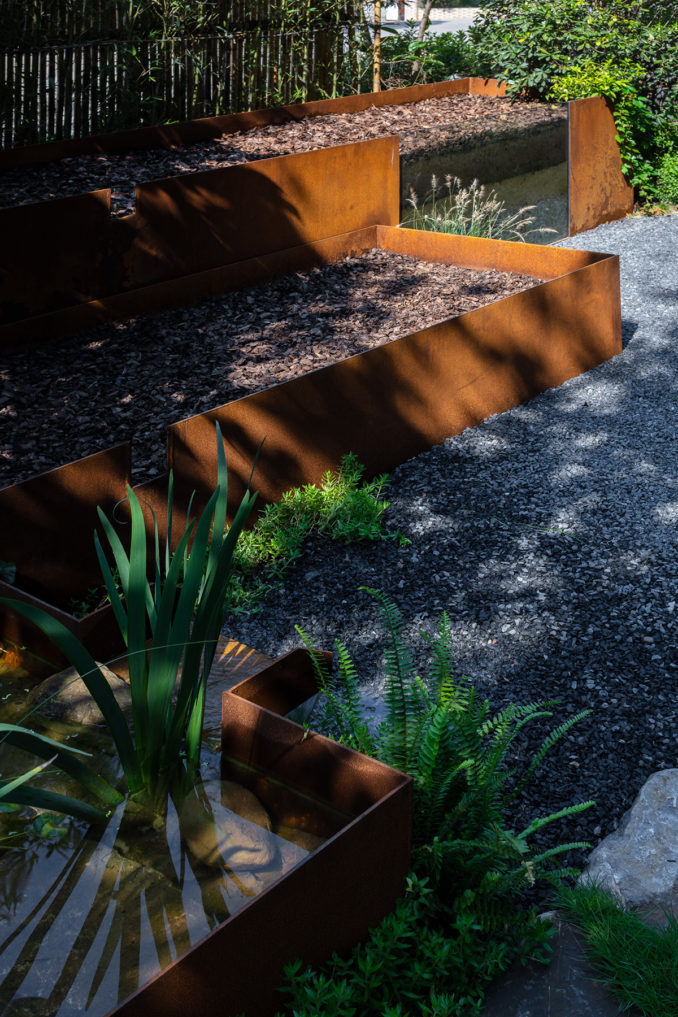
Landscape Architect | GVL (Gossamer)
Photo credit | GVL (Gossamer)

